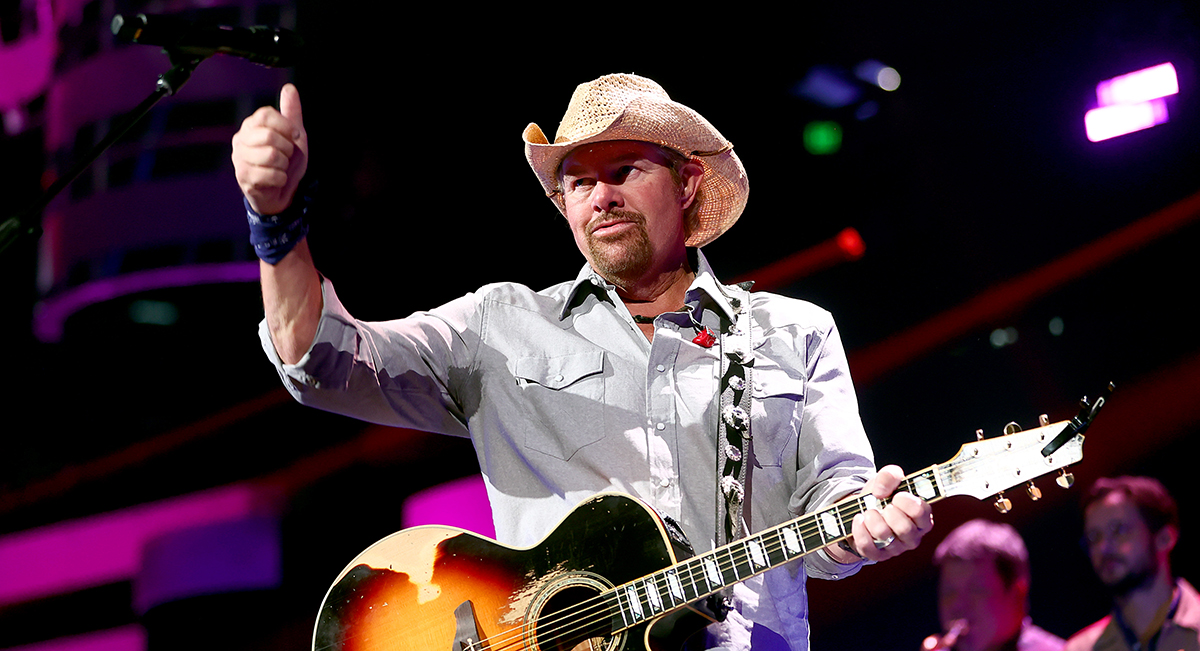Understanding Alcohol Consumption and Cancer Risk
- Country music legends Toby Keith, 61, and Willie Nelson, 90, released their iconic hit "Beer for My Horses" 20 years ago. Alcohol makes for great music but it can increase your risk of cancer.
- Drinking has shown to increase your risk of several cancers, including head and neck, esophageal, liver, breast and colorectal, according to the National Cancer Institute.
- Research shows that people who lowered their consumption in turn lowered their risk of cancer.
- Oncologists we spoke with indicate that moderation is key, suggesting that one glass a day or four drinks per week may be fine for women.
- Breast cancer and wellness coach Victoria Martin shared tips with SurvivorNet to help people avoid reaching for alcohol in stressful times. She suggests shifting your mindset to what you will gain – instead of what you will lose – from avoiding alcohol.
Country music legends Toby Keith, 61, and Willie Nelson, 90, are on the heels of the twentieth anniversary of their chart-topping, take-the-law-into-your-own-hands song "Beer for My Horses." Clearly, alcohol makes for great music, but the beverage also increases your cancer risk. Here’s what to know.

“Beer for My Horses” had a six-week reign at the top of the charts in 2003, according to Billboard. It has been played on the radio "3.8 billion" times and streamed "229 million" times in the U.S.
Read MoreAlthough the alcohol-inspired song brought Keith and Nelson much success, consuming alcohol can be harmful to your health – evening increasing your risk of cancer (more on that below)
Even Nelson, who has been open about his previous drug and alcohol habits, in recent years has made lifestyle changes to improve his health. In an interview with People magazine, Nelson said he no longer smokes or drinks and believes the decision to stop has "added a few days" to his life.
Keith, meanwhile, has been dealing with stomach cancer since 2021. He underwent six months of chemotherapy, radiation, and surgery. He described his cancer journey as "pretty debilitating" in an interview last year with Page Six.
However, in recent weeks he's been surfacing more on social media, appearing to have lost a little weight but seeming to be in good spirits overall.
We don’t know what caused Keith’s stomach cancer.

Is There a Link Between Cancer and Alcohol Consumption?
There is a clear link between consuming alcohol, especially drinking it regularly over time, and an increased risk of several cancers, according to the National Cancer Institute. Those cancers include head and neck, esophageal, liver, breast and colorectal.
According to a study published last year in JAMA Network Open, people with "heavy drinking levels had an associated higher risk” of developing alcohol-related cancers “than those who did not drink."
The study included 4.5 million participants who self-reported their drinking habits. The results concluded people who reduced their alcohol consumption lowered their risk.
Conversely, "Those with moderate or heavy drinking levels who quit drinking had a higher all cancer incidence than those who sustained their levels, but when quitting was sustained, this increase in risk disappeared."
Dr. Elizabeth Comen, an oncologist at Memorial Sloan Kettering Cancer Center and a SurvivorNet medical advisor, told SurvivorNet that every drink consumed increased cancer risk.
WATCH: Alcohol and its impact on colon cancer risk.
"What that means is a linear response to risk, meaning that each drink increases a woman's risk for breast cancer. So binge drinking it's not good for anybody. And it's also not good for a woman's increased risk of breast cancer," Dr. Comen explained.
Dr. Heather Yeo, a colorectal cancer surgeon at New York Presbyterian/Weill Cornell Medical Center, said she also believes alcohol increases the risk for certain cancers but acknowledged that the data was mixed, especially for colon cancer.
"I do think that high levels of alcohol certainly predispose to a certain number of cancers, including pancreatic and liver cancer, and may predispose to colon cancer," she said.
"But there's also some data that shows that low levels of alcohol, or a glass of wine here and there, may actually lower your risk of colon cancer," Dr. Yeo continued.
How Much Alcohol Can You Consume?
When it comes to knowing how many drinks you can safely have? The World Health Organization has plainly said no level of alcohol consumption is safe for our health.
Dr. Comen agrees that consuming no alcohol is safest.
"Patients ask me this all the time, 'Well, how much can I drink?'" she said. "If you want to have absolutely no risk from alcohol, then don't drink at all. But probably having less than four glasses a week of alcohol is probably OK."
Guidelines from the Centers Centers for Disease Control and Prevention suggest two drinks or less for men and one drink or less per day for women.
Dr. Yeo shared a similar message regarding moderation.
"For women, anything over a half a glass or a glass a day is probably not helping your overall health," Dr. Yeo said. "For men, they can probably go one to two glasses before they start seeing health effects."
More on Alcohol and Cancer
- Alcohol Can Cause Cancer — So Why Don’t Beer, Wine, Whiskey and Other Booze Labels Warn Us?
- Alcohol Can Increase the Risk of Developing Breast Cancer
- Alcohol Consumption Increases Cancer Risk. Less Booze Is Associated With Lower Cancer Risk, New Data Adds To The Case For Moderation
- Alcohol Intake Has a Big Impact on Colon Cancer Surgery
Helpful Tips to Help You Avoid Alcohol
Do you struggle with alcohol in times of stress? Victoria Martin did. She is a breast cancer survivor and wellness coach who used her own experience to help others with alcohol addiction.
She shared some helpful tips and actionable steps people can use to help break unhealthy habits and cope with stress without alcohol.
- Mindset: Instead of looking at it like this is something you have to give up, try making a tiny shift in your language and thinking that still feels true. Have an open mind and think about what you will gain and learn, rather than approaching from deprivation.
- Be Curious: What would it feel like to experience some new thoughts and feelings to replace the worn-out ones? It is empowering to realize that you can change your patterns and see what is on the other side.
- Understand This is Not the Garden of Eden: Thinking of anything as a "forbidden fruit" creates even greater cravings, feelings of resentment, and deprivation. You are simply getting curious and creating changes that you get to make. Also, emotional attachments to our habits are very real, so it is perfectly healthy to acknowledge and honor these feelings.
- Create a Toolbox: Habits that no longer serve us, did serve a purpose at some point, and that is part of why we use them past their expiration date. You may be surprised at how uncomfortable some moments can be, but you can learn tools and tactics that will make it easier than staying stuck.
- Find Your People: You are not alone. Luckily, there is strength in numbers and a community where you can connect with people who understand what it is like. Sharing your experience won't just help you feel less alone, but you will be helping others.
- Drop the "Shoulds": One of the quickest ways to be defeated is by "shoulding ourselves." Expecting to be perfect and tearing ourselves down will only lead to our maladaptive habits gaining more of a foothold. Practice speaking to yourself the way you would speak to a friend and see how kindness gets you moving in the right direction.
Learn more about SurvivorNet's rigorous medical review process.

